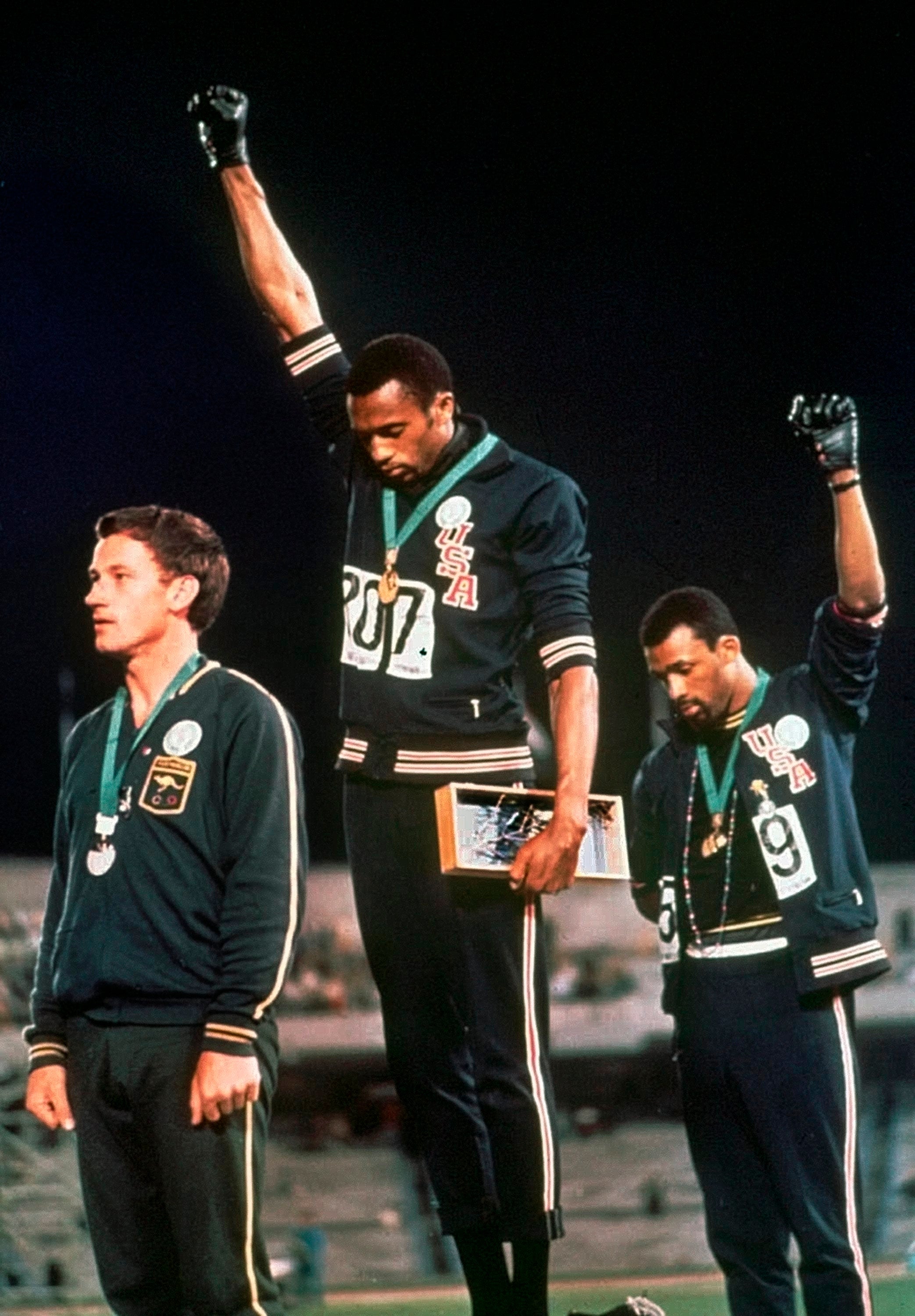Olympics on tight timeline to chart new path on protest
The U.S. Olympic and Paralympic Committee's decision not to punish athletes who raise fists on the medal stand was met with a tepid response from the IOC

Your support helps us to tell the story
From reproductive rights to climate change to Big Tech, The Independent is on the ground when the story is developing. Whether it's investigating the financials of Elon Musk's pro-Trump PAC or producing our latest documentary, 'The A Word', which shines a light on the American women fighting for reproductive rights, we know how important it is to parse out the facts from the messaging.
At such a critical moment in US history, we need reporters on the ground. Your donation allows us to keep sending journalists to speak to both sides of the story.
The Independent is trusted by Americans across the entire political spectrum. And unlike many other quality news outlets, we choose not to lock Americans out of our reporting and analysis with paywalls. We believe quality journalism should be available to everyone, paid for by those who can afford it.
Your support makes all the difference.For generations the IOC knew exactly where to look for key support of its ban against protests at the Olympics.
In 1968, it was the U.S. Olympic Committee that sent home its own athletes Tommie Smith and John Carlos, when they raised their fists while on the medals stand at the Mexico City Games.
In 2019, it was the same organization that placed its own athlete, Gwen Berry, on probation for doing the same after her win at the Pan-Am Games.
This week, the American federation put the IOC on notice: It is no longer the IOC's partner when it comes to enforcing the contentious Rule 50. The USOPC is now heeding the calls from many of its own athletes and will no longer punish them for kneeling or raising fists or any other kind of acceptable demonstration at the Olympics.
“When you sit in my seat, you have to make decisions that you think are on the right side of history," said CEO Sarah Hirshland. "And I believe we’re on the right side of history.”
But there are details to iron out, and they strike to the heart of how much change is truly possible between now and next July, when the Tokyo Olympics are scheduled to take place.
High on the list: What can athletes demonstrate about, and what will an acceptable demonstration look like?
“That becomes a difficult situation,” said Harry Edwards, the activist who helped brainstorm the gestures by Smith and Carlos 52 years ago. “Because you could very easily get into a thing of trying to outdo someone else and it ends up having nothing to do with the spirit of the issue.”
That confusion helps explain the calculated response to the USOPC that came from the IOC in the form of a short release from the head of its athlete commission, swimmer Kirsty Coventry of Zimbabwe.
Well aware that the protest rule can’t stay as-is for the foreseeable future, Coventry and the IOC are in the process of surveying athletes across the globe for their thoughts about possible changes. She said the majority of the respondents believe in the right of free speech, which is “respected” at the Olympic Games (but only in certain settings) and “express support for preserving the ceremonies, the podium and the field of play.”
Though Coventry’s committee is still accepting feedback, and won’t make any final decisions until early next year, she’s previewing a far less radical adjustment to Rule 50 than the U.S. contingent would like.
American athletes have been reeling from a summer of unrest over police violence against Black people in the United States. Every major sports league has agreed to change policies to give their players a bigger platform to discuss race and social injustice.
But U.S. sports leagues and the Olympics are very different creatures. The Olympics are a behemoth that counts America as only one of 206 countries who are members.
Some of the biggest members are among the IOC's most important partners — China, for instance, hosted the 2008 Olympics and will do so again in 2022 — and they don't share the same concerns or values about free speech or racial injustice as do the United States and many of its closest allies.
“Many have also recognized the practical question of how to choose between the opinions of hundreds of issues from different angles across the world,” Coventry said of her survey respondents. “We can see that it would be very difficult to make such a judgment without dividing the athlete community across all 206 NOCs.”
Moushaumi Robinson, who led the U.S. athletes group that pressed for the changes, said she understands the complexities. Her group continues to discuss them to try to come up with solutions.
“A lot of us just want to be able to say ‘I may not agree with you but I respect that you have a voice,'" she said. “And we want to be able to express it without someone punishing you for it.”
All of which leads Edwards to believe that Thursday's move by the USOPC and its athletes is a sign of progress — not necessarily a huge leap but another step.
“This is an ongoing struggle, and it's going to continue to be a struggle," he said. “And what today reflects is that this generation of athletes is more than willing to do their part.”